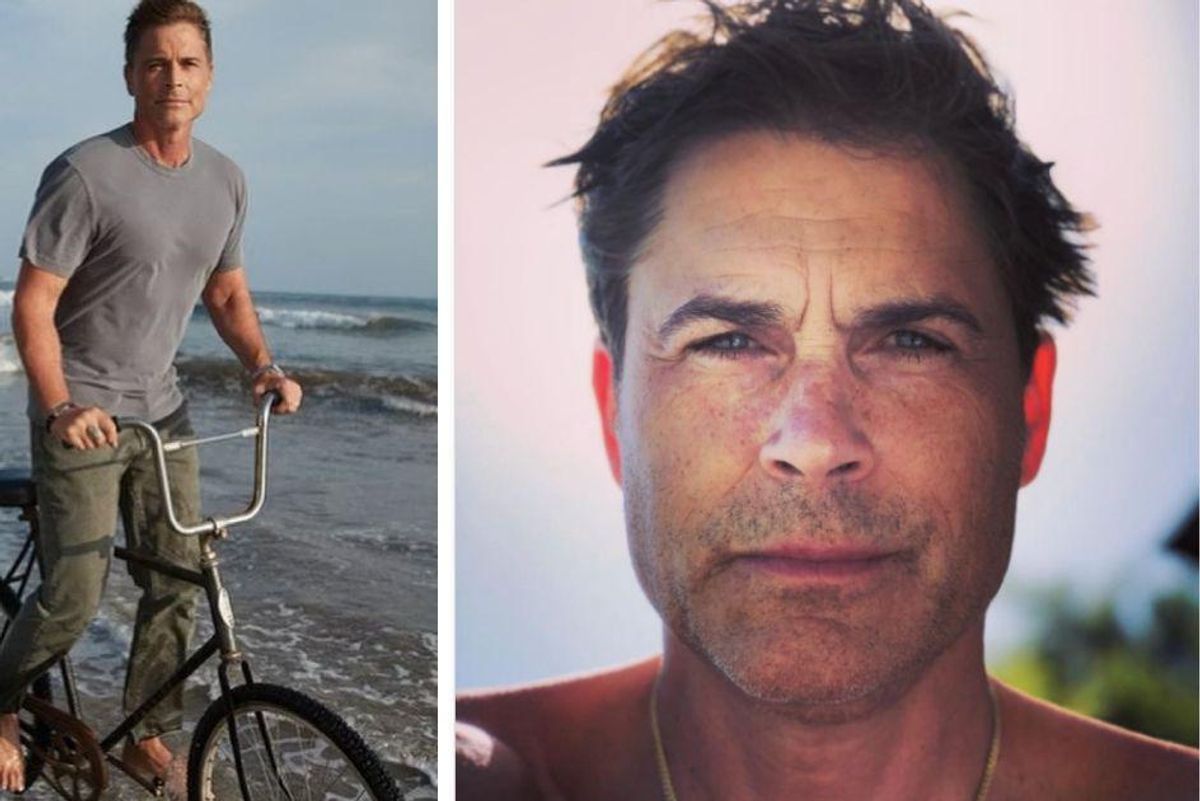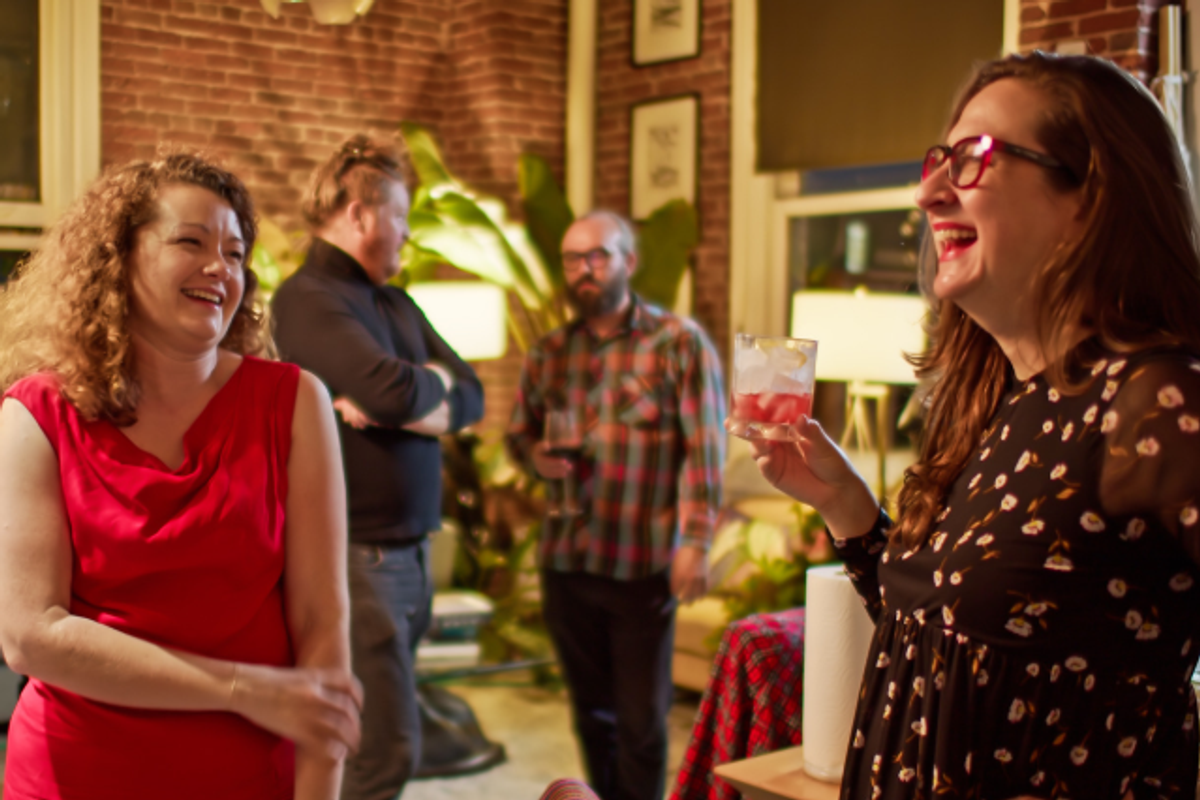Rob Lowe, celebrating 31 years of sobriety, offers hope to other recovering addicts

Anyone who has gone through the process of disentangling themselves from an addiction knows it's an ongoing, daily battle. It may get easier, and the payoffs may become more apparent, but it's still a decision someone makes each day to stay detached from their substance of choice.
Seeing someone who has a long record of sobriety—especially after a very public struggle—can be motivating and inspiring for others in different stages of their recovery journey. That's part of why actor Rob Lowe's announcement that he's reached 31 years sober is definitely something to celebrate.
"Today I have 31 years drug and alcohol free," Lowe wrote on Twitter. "I want to give thanks to everyone walking this path with me, and welcome anyone thinking about joining us; the free and the happy. And a big hug to my family for putting up with me!! Xoxo"
Lowe, who is now 57, spent his early-to-mid 20s embroiled in negative press after a scandal over an underage sex tape (he was 24 and one of the two women he was with was 16—over the age of consent for sex in the state of Georgia at the time, but too young to be recorded) and his widely publicized substance abuse issues. In 1990, two years after the sex tape scandal, he decided to stop drinking and doing drugs. He entered a rehab program—which he has said was the best decision he ever made—and has managed to remain sober ever since.
He has also been married to his wife, Sheryl Berkoff, since 1991. The couple has raised two sons, who are now around the age Lowe was when he got sober, and who love to hilariously troll their old man on social media. (Even when you're a studly, successful superstar, your kids will always be there to keep you grounded.) His career has flourished since his return to television in "The West Wing," and he has become a bit of a poster boy for redemption in Hollywood.
He has also been quite open about how happy sobriety has made him. Last year, on his 30th recovery anniversary, Lowe wrote about his "sober life of true happiness and fulfillment" on Instagram.
"From a treatment center in Arizona to a bomb shelter in Israel, I have come to know many extraordinary people," he wrote, "and the fellowship of recovery has changed my life and given me gifts beyond my selfish imaginings."
One of Lowe's big fears when he got sober at 26 was that he wasn't going to have fun anymore. He told Kelly Clarkson that he couldn't imagine not having a drink at his wedding or a whiskey when his kids were born. "Guess what?" he said. "Yes, I didn't have any of that, and it's awesome."
Lowe told Variety that sobriety has to come from a deep desire for change in the addict themselves.
"Nothing can make you get sober except you wanting to do it," he said. "The threat of losing a marriage, losing a job, incarceration — you name the threat, it will not be enough to do it. It's got to be in you. The reason that people don't get sober 100% of the time when they go into programs is that people aren't ready when they go to use the tools."
Lowe also shared with Variety the moment he knew he was ready for rehab:
"I was ready when one day back in the days of answering machines, my mother called me and I could hear her voice on the answering machine. I didn't want to pick up because I was really, really hungover and I didn't want her to know. She was telling me that my grandfather, who I loved, was in critical condition in the hospital and she needed my help. And I didn't pick up. My thought process in that moment was 'I need to drink a half a bottle of tequila right now so I can go to sleep so I can wake up so I can pick up this phone."Lowe says that all of his understanding about life has come from getting and staying sober. "The only way to stay in recovery is to be honest with yourself on a minute-by-minute basis," he told Variety. "No secrets, no double life. And you have to get real...the longer you are in recovery the more facile you are in getting honest."
Congratulations on 31 years sober, Rob Lowe. May your story be an inspiration to others who are on their own path to and through recovery.
- After 16 years sober, Dax Shepard bravely announced a reset of his ... ›
- This popular mom vlogger is a drug addict. That matters. - Upworthy ›
- Rob Lowe's sons constantly troll him on social media and it's ... ›
- Macklemore joins CLEAN Cause to help support addiction recovery in a stunning new video series ›
- This spirit company makes alcohol free spirits worth raising a glass to - Upworthy ›
- Hayden Panettiere proves doing what's best isn't always easy - Upworthy ›
- Things peple don't tell you about alcholic parents - Upworthy ›
- Matthew Perry shares what he'd like to be remembered for - Upworthy ›
- Rob Lowe attempts to delight kids by dressing as the Easter Bunny and it goes hilariously wrong - Upworthy ›
- The seemingly immortal Rob Lowe reveals his 3 adorably accurate secrets to looking young - Upworthy ›



 A man being licked by a golden retreiver.
A man being licked by a golden retreiver.  A dog's tongue close-up.
A dog's tongue close-up.  A golden retreiver getting their teeth brushed.
A golden retreiver getting their teeth brushed. 
 Curtains can help make a space feel homey and hide bad windows and trim.
Curtains can help make a space feel homey and hide bad windows and trim. Clean and tidy sets a mood.
Clean and tidy sets a mood. Lighting makes a big difference in how your home feels.
Lighting makes a big difference in how your home feels.

 Cathedral-like libraries like the George Peabody Library in Baltimore, Maryland are popular places for creative work.By Matthew Petroff/
Cathedral-like libraries like the George Peabody Library in Baltimore, Maryland are popular places for creative work.By Matthew Petroff/ The Sterling Memorial Library at YaleBy Nick Allen/
The Sterling Memorial Library at YaleBy Nick Allen/
 A woman making eye contact with a man she is speaking to.via
A woman making eye contact with a man she is speaking to.via  A man in a suit with questions.via
A man in a suit with questions.via